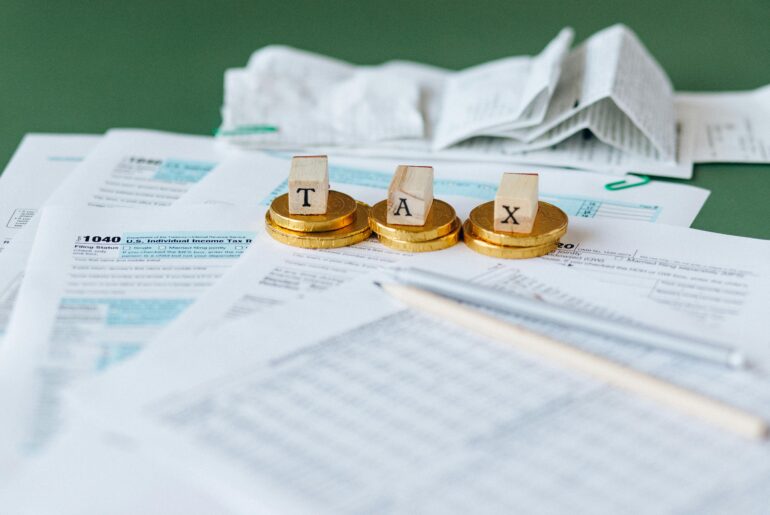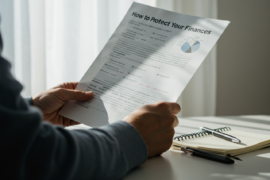This article may contain references to products or services from one or more of our advertisers or partners. We may receive compensation when you click on links to those products or services. Nonetheless, our opinions are our own.
In personal finance, grasping the complexities of tax-related issues is essential for safeguarding your financial future. Many individuals encounter the terms tax lien and tax levy but may not fully understand their implications or the consequences of ignoring them. This comprehensive overview seeks to illuminate the distinctions between a tax lien and a tax levy, elucidate their potential impacts on your financial situation, and provide actionable strategies for prevention and resolution.
Defining Tax Liens and Tax Levies
A tax lien is a legal claim the government imposes against your property due to unpaid taxes. It serves as an official notice of debt, signaling to creditors that the government holds a legal interest in your assets. While a tax lien does not result in the immediate loss of property, it complicates your ability to sell or refinance, as it represents an obligation that must be settled before any transactions occur.
Conversely, a tax levy is a more aggressive action in which the government seizes assets to satisfy tax debts. This may involve garnishing wages, taking funds from bank accounts, or even confiscating personal property. Understanding these distinctions can help individuals navigate potential pitfalls and avoid dire financial situations.
Recognizing Early Warning Signs
Early detection of a tax lien or levy is essential for mitigating potential financial damage. Being aware of the following indicators can empower individuals to take proactive steps before issues escalate:
- Unpaid Tax Notices: Receiving multiple overdue tax bills is a warning sign that immediate action is needed.
- Bank Account Freezes or Wage Garnishments: These actions may result from an enforced levy, leading to severe financial repercussions.
- Negative Changes on Your Credit Report: A tax lien can appear as a public record, significantly harming your credit score and future borrowing capabilities.
- Inability to Respond to IRS Communications: If you feel overwhelmed or unable to engage with tax issues, you may already be at risk of enforcement actions.
Consequences of Neglecting Tax Obligations
Ignoring tax obligations can lead to a cascade of financial troubles. Not only do penalties and interest accumulate over time, but the overall economic burden can become unmanageable. Overlooking tax debts may hinder your ability to address other essential commitments, such as paying loans or saving for retirement.
Additionally, unresolved tax issues can tarnish your credit score, as a tax lien creates a public record that deters potential lenders. In the most severe cases, a tax levy can directly seize your hard-earned income or valuable assets.
Proactive Measures to Prevent Liens and Levies
Preventing tax liens and levies begins with vigilant financial management. Consider the following strategies to safeguard your financial health:
- Timely Filing of Taxes: Always file your tax returns on time, even if you cannot pay the full amount owed. Timely filing can reduce penalties and demonstrate good faith to tax authorities.
- Establishing a Budget: Allocate a portion of your income specifically for taxes to prevent unexpected liabilities at the end of the fiscal year.
- Open Communication with the IRS: If financial hardship arises, do not hesitate to contact the IRS to discuss potential payment plans or relief options.
- Consulting with Tax Professionals: Seeking advice from qualified tax professionals can provide personalized guidance tailored to your circumstances.
Responding to Notices of Tax Liens or Levies
It is essential to act swiftly upon receiving a notice related to a tax lien or levy. Here are the critical steps to take:
- Engage with the IRS or Tax Authority: Initiating contact can open avenues for negotiation, such as establishing a payment plan or seeking temporary relief.
- Request a Collection Due Process (CDP) Hearing: This procedure allows you to appeal the lien or levy, potentially pausing enforcement actions during the appeal process.
- Explore Payment Options: If feasible, consider paying full to clear the debt or setting up an installment agreement to ease financial strain.
Frequently Asked Questions
What is a tax lien?
A tax lien is a legal claim imposed by the government on your property when you fail to pay your tax debt. This claim informs creditors that the government has a right to your assets, including real estate and other possessions.
What is a tax levy?
A tax levy is the legal seizure of your property to satisfy a tax debt. The government can take assets, such as funds from bank accounts or wages, to cover overdue taxes, unlike a lien, which signifies a claim; a levy results in the actual confiscation of property.
How do tax liens and tax levies differ?
The key difference lies in the action taken against the taxpayer. A tax lien serves as a warning and a claim on property, allowing the government to act in the future, while a tax levy is an immediate action that can lead to asset loss to collect unpaid taxes.
What can I do to stop a tax lien?
To stop a tax lien, you generally need to pay the debt in full, negotiate a payment plan, or apply for a tax lien withdrawal if you have resolved the issue. Additionally, you may dispute the validity of the lien if it is incorrect. Engaging a tax professional can help navigate this process.
How can I prevent or stop a tax levy?
To prevent or stop a tax levy, promptly address any tax notices you receive. You can negotiate with the IRS or state tax authority for a payment plan, submit an offer in compromise, or contest the levy if you believe it was unjustly issued. Filing for financial hardship may also provide temporary relief from collection efforts.
Conclusion
Understanding the distinctions between a tax lien and a tax levy is vital for maintaining financial stability. By recognizing the early signs of tax issues and taking proactive measures, individuals can protect their assets and avert significant economic consequences. Whether dealing with a lien or a levy, informed action is the best defense against tax-related challenges.

Reviewed and edited by Albert Fang.
See a typo or want to suggest an edit/revision to the content? Use the comment form below for feedback.
At FangWallet, we value editorial integrity and open collaboration in curating quality content for readers to enjoy. Much appreciated for the assist.
Did you like our article and find it insightful? We encourage sharing the article link with family and friends to benefit as well - better yet, sharing on social media. Thank you for the support! 🍉
Article Title: Tax Lien vs. Tax Levy: The Difference and How to Stop Them
https://fangwallet.com/2025/04/08/tax-lien/The FangWallet Promise
FangWallet is an editorially independent resource - founded on breaking down challenging financial concepts for anyone to understand since 2014. While we adhere to editorial integrity, note that this post may contain references to products from our partners.
The FangWallet promise is always to have your best interest in mind and be transparent and honest about the financial picture.
Become an Insider
Editorial Disclaimer: The editorial content on this page is not provided by any of the companies mentioned. The opinions expressed here are the author's alone.
The content of this website is for informational purposes only and does not represent investment advice, or an offer or solicitation to buy or sell any security, investment, or product. Investors are encouraged to do their own due diligence, and, if necessary, consult professional advising before making any investment decisions. Investing involves a high degree of risk, and financial losses may occur including the potential loss of principal.
Source Citation References:
+ Inspo
There are no additional citations or references to note for this article at this time.











































